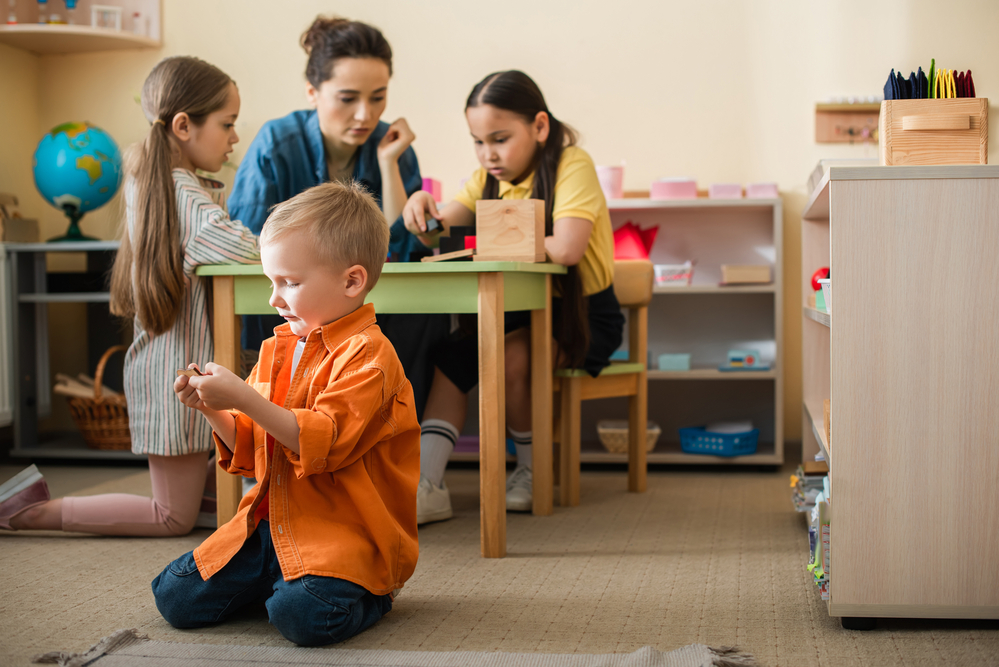Friendships are important at all ages. At a personal level, friends share fun experiences, offer different perspectives, and support one another in challenging times. While at a global level, the United Nations says that friendships have the power to generate passion for a better world and unite people for the greater good.
When it comes to children, social bonding is an important part of their development. While toddlers are making friends for the first time, preschoolers are building solid relationships, so let’s look at some suggestions for supporting your young child’s friendships.
Toddlers: How to build friendship skills and manage playdates
As with all people, some young children are social, and others prefer the company of fewer playmates. Whatever their disposition, toddlers aren’t born knowing how to share, take turns, and problem-solve, so they need your help to learn and practice these friendship skills.
By playing with them and organising playdates, your toddler will learn how to play well, which in turn, builds the groundwork for later social skills. Here’s what you can do:
- Spend time playing together
As well as being a fun bonding experience, parent/child play provides opportunities to show your toddler how to do things, whether that’s sharing a lump of playdough or taking turns kicking a ball. Toys can be used to model friendship skills and toddlers respond well to praise, so don’t forget to say things like, ‘Thank you for sharing with Mummy’ when they play well.
- Organise playdates
Play is how young children learn, and the more they play with others, the more likely it is that they’ll learn to play well.
Before the playdate, put away any ‘special toys’ and leave out plenty of toys and games that they’ll be happy to share. Instead of setting up turn-taking games, plan side-by-side activities like sandpit play, block-building, and painting, and focus on a relaxed atmosphere, rather than highly structured activities.
Once the playdate starts, the Raising Children Network recommends that you keep playtime short, from about 45 minutes to an hour, so that it ends on a high note. Sit with the children for a while when they start playing, then move to the sidelines once they’re playing happily together. Stay within eyesight and earshot, though, and if you sense tension between the children, step in to diffuse the situation.
If there’s a dispute over a toy, you can distract them by saying, ‘Let’s play with these teddies. Ella, you can have the brown one. Lucy, you can have the white one’, before stepping away again. Sometimes you’ll need to reassure your child that their toys still belong to them. If your toddler is being aggressive because they’re not getting their way, then it’s important to firmly say, ‘Stop’ and tell them what you want them to do instead.
Between the ages of one and two, your toddler will probably be playing with the children of family, friends and other parents, but as they get older, they’re better able to speak their mind and will let you know who they like socialising with, which is always good to know!

Preschoolers: How they make friends and the support you can offer
As with toddlers, some preschoolers are more social than others, and the Raising Children Network says, ‘There’s a big range of normal when it comes to preschoolers making friends’.
That said, by the age of three, many children regularly spend time with other children either at child care or playgroup, and they may:
- Know who their friends are and can name them
- Look for their friends when they arrive at child care
- Play just with their friends
- Ask to have a playdate with particular friends
- Don’t have friends they can name but are keen to make some! Note: that by the age of four, most preschoolers can tell the difference between ‘my friend’ and other peers.
As with toddlers, preschoolers are building the friendship skills they need now and going forward. As well as practising sharing and turn-taking, preschoolers are also learning how to cooperate, listen and negotiate.
You should encourage these skills in family life, and to help your preschooler make friends during play, it’s a great idea to set up playdates with other children whose company they enjoy.
On the day of the playdate, remember to:

- Put away your preschooler’s special toys before their friend arrives to avoid disagreements later.
- Help your child play well by giving the children different play options and praising them when they settle on an activity together.
- Stay in close physical proximity and keep an eye on proceedings. This provides reassurance for your preschooler and allows you to easily intervene if there’s an argument or ‘too rough’ play.
- Help your child if they’re struggling to play. The Raising Children Network says that solo play is nothing to worry about and that children often play alongside one another as they learn how to play together. However, if your preschooler doesn’t know how to join in, they’re often being left out, or they don’t want to play with others, then you can:
- Talk about the ways they could get involved, then invite other children to join in (e.g. ‘Can you help me build this tower? Can you see if anyone else will help us make it really tall?)
- Encourage your preschooler to watch what the other kids are doing, so they understand how to get involved (e.g. ‘What’s Thomas doing with that dress-up box? Do you think he’s playing superheroes? Do you think he needs a Batman?)
- Set a time limit for the playdate so that the children aren’t too tired at the end and are keen to play together again.

Some young children are social butterflies and some not-so-much, but all youngsters need to learn the friendship skills that will accompany them through life. By practising these skills together, setting up playdates and trouble-shooting along the way, you can help your child learn to play well and be a good friend.


